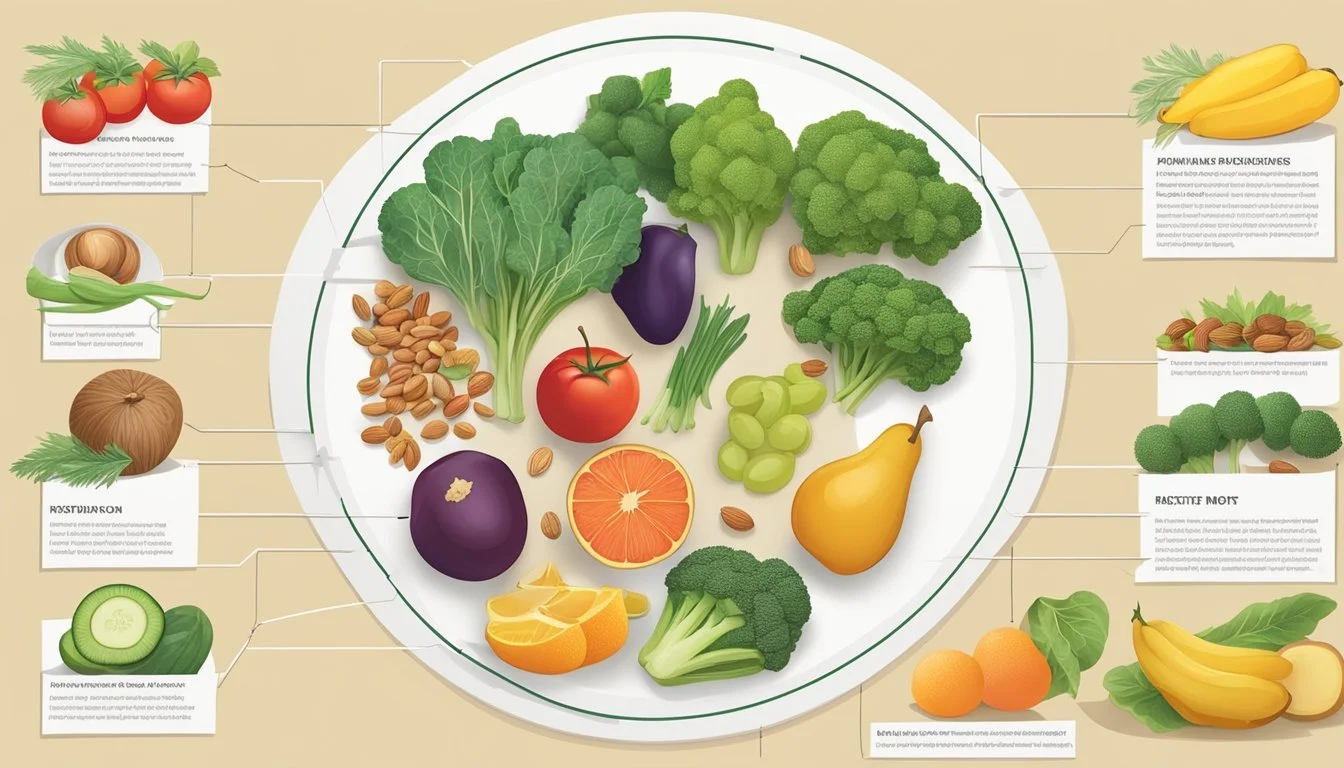Powerful Foods That Combat Prostate Enlargement Naturally
Prostate enlargement, also known as benign prostatic hyperplasia (BPH), affects many men as they age, leading to uncomfortable urinary symptoms. Dietary choices can play a significant role in managing these symptoms and promoting overall prostate health.
Research indicates that certain foods can help reduce the risk of developing an enlarged prostate and alleviate existing symptoms. Maintaining a diet rich in fruits, vegetables, and healthy fats is essential for supporting prostate health and improving quality of life.
Understanding Prostate Enlargement
Prostate enlargement, commonly known as benign prostatic hyperplasia (BPH), occurs frequently in aging men. It's essential to know what it is, what causes it, and what symptoms it presents to address it effectively.
What is Prostate Enlargement?
Prostate enlargement involves the increase in size of the prostate gland, situated below the bladder and in front of the rectum. This condition is non-cancerous, distinguishing it clearly from prostate cancer. The prostate gland surrounds the urethra, and as it enlarges, it can press against and constrict the urethra, leading to urinary problems.
BPH is common in older men, with about half experiencing symptoms by age 50. Though the condition itself is not malignant, it can significantly affect the quality of life if untreated.
Causes of Prostate Enlargement
The exact cause of prostate enlargement is not fully understood. However, several factors contribute to the risk.
Age: The likelihood of developing BPH increases with age. Hormonal changes, particularly an imbalance between testosterone and dihydrotestosterone (DHT), are closely linked to this condition.
Family History: Genetics play a role, and those with a family history of BPH are more likely to develop the condition themselves.
Lifestyle Factors: Poor lifestyle choices, such as lack of exercise, unhealthy diet, and excessive alcohol consumption, may also increase the risk. Additionally, medical conditions like obesity, heart disease, and diabetes can contribute to prostate enlargement.
Symptoms of Enlarged Prostate
Symptoms of an enlarged prostate largely revolve around urinary issues. Common symptoms include:
Frequent Urination: Needing to urinate more often, especially at night (nocturia).
Urgency to Urinate: A sudden strong need to urinate.
Difficulty Starting Urination: Trouble initiating urination or a weak urine stream.
Incomplete Bladder Emptying: Feeling that the bladder hasn’t fully emptied even after urination.
Other symptoms might include dribbling at the end of urination or straining to urinate. These symptoms can significantly impact daily life, and it is advisable to consult with a healthcare provider for proper diagnosis and management.
Dietary Considerations for Prostate Health
Diet can play a crucial role in managing the symptoms of an enlarged prostate, which includes incorporating beneficial nutrients, avoiding harmful foods, and consuming antioxidant-rich foods.
Nutrients Beneficial for the Prostate
Certain nutrients have been found to be particularly useful for prostate health. Zinc is vital as it helps regulate prostate growth and function. Foods rich in zinc include shellfish, pumpkin seeds, and beef.
Omega-3 fatty acids found in fish like salmon and mackerel can help reduce inflammation. Including soy isoflavones, found in soybeans, tofu, and soymilk, may help manage lower urinary tract symptoms.
Foods to Avoid
Some foods can exacerbate symptoms of an enlarged prostate. Red meat and high-fat dairy products have been linked to increased prostate size. It's wise to limit these in your diet.
Processed foods and sugar can lead to inflammation which worsens symptoms. Caffeine and alcohol may increase urinary frequency and urgency, so they should be consumed in moderation.
Antioxidant-Rich Foods
Antioxidants can aid in reducing inflammation and oxidative stress in the prostate. Tomatoes are particularly beneficial due to their high lycopene content. Other antioxidant-rich foods include berries, green tea, and cruciferous vegetables like broccoli and kale.
Eating a wide variety of these foods can support overall prostate health and potentially alleviate some symptoms.
Role of Supplements in Prostate Health
Certain supplements have gained attention for their potential impact on prostate health. Understanding which supplements are commonly used and the importance of consulting with healthcare providers can guide individuals in making informed decisions.
Commonly Used Supplements
Zinc: Some believe zinc can benefit prostate health. However, high doses, such as 100 milligrams daily, might increase prostate cancer risk.
Beta-sitosterol: This plant sterol found in fruits, vegetables, nuts, and seeds may help alleviate urinary symptoms associated with an enlarged prostate.
Vitamin E: Research indicates that vitamin E could increase prostate cancer risk, emphasizing the need for caution.
Saw Palmetto: Often used for improving urinary symptoms linked to an enlarged prostate, saw palmetto may vary in effectiveness between individuals.
Importance of Consulting Healthcare Providers
Taking supplements without professional guidance can pose health risks. Healthcare providers can offer personalized advice based on medical history and current health status. They help evaluate the compatibility of supplements with existing medications. This prevents potential adverse interactions. Consulting with a healthcare provider ensures that decisions are both safe and beneficial.



